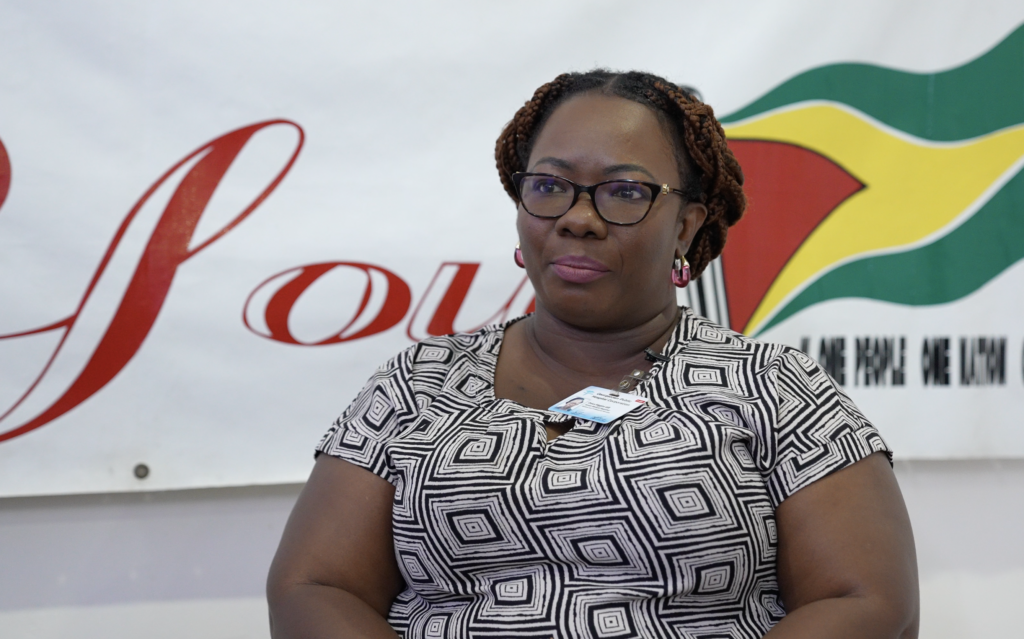GPHC developing protocols to declare patients brain dead
The Georgetown Public Hospital Corporation (GPHC) Intensive Care Unit (ICU) is in the final stages of developing a protocol that would enable the institution to declare patients brain-dead and allow cadaveric transplantation.
During a recent interview with the News Room, Intensivist and Anesthesiologist Dr. Onica Higgins-Gill said that the protocol was developed after several consultations and the department is now near completing the determination of brain dead protocol.
“The main delay was just to have it complied and to compare it with other first world countries to ensure that what we’re going to be doing is of international standard. We’re currently at a place where we’re consulting within the department and finalizing to submit this to the administration,” she said.

The protocol is being developed in keeping with the Human Organ and Tissue Transplant Act which was passed in the National Assembly in January, 2022 and provides the legal framework for removal of human organs, tissues, cells and biofluids for transplantation and blood transfusion.
Dr. Higgins-Gill, who worked in the ICU for over 10 years, highlighted that one of the major challenges the department faced is being unable to discontinue management of patients being ventilated who are considered brain-dead, due to the absence of legislation.
“Critical care is very expensive, it uses quite a lot of resources and sometimes we’re in a position where we have other patients that require the very bed that the brain- dead patient is on and because we’re unable to cease care for that patient we now have to expend our resources,” she explained.
“The hospital sometimes has to send patients out of GPHC to occupy other beds at private facilities and this is an added expense,” she added.
However, through the protocol, not only does the hospital not expend critical resources on a brain-dead patient that is not going to benefit from it, but another patient can benefit from cadaveric transplantation by receiving an organ from the brain-dead individual.
To determine that a patient is brain-dead the hospital conducts a series of objective meticulous tests carried out by two separate teams on distinct occasions, all in an effort to ensure accuracy.
Firstly, a known cause as to why the patient is unconscious must first be established; Dr. Gill explained that in most cases the patient is diagnosed with a catastrophic brain injury which can be determined through magnetic resonance imaging (MRI) or computerized tomography (CT) scan.
The hospital must then ensure that there is no other factor that may contribute to making the patient unresponsive, this includes any medication or treatment that the patient is receiving, Dr. Higgins-Gill explained.
And finally, a number of steps to test brain function are conducted from which specific physical findings and values must be established before a person can be declared brain-dead, she said.
In developing the protocol, the ICU team also assessed the deficits of the department based on the protocol which was developed in line with international standards.
“It’s great to be able to say that there are not significant defects, it’s something that can be implemented pretty smoothly,” Dr. Higgins-Gill said.
The Human Tissue Transplant legislation provides the regulatory framework which will enable Guyana to perform cadaveric transplantation; this is the transplant of tissue from ‘brain dead’ individuals, or cadavers as they are referred to.
During a recent interview with the News Room, Head of Department, Multi-Organ Transplant and Vascular Access Surgery at GPHC, Dr. Kishore Persaud said that the transplant unit has been working with various teams to implement the legislation in a regulated manner.

“From our perspective, the transplant team, we’re all set, we have everything in place, we have a full surgical team on board and we have a dedicated transplant unit ready to implement cadaveric transplantation in Guyana,” Dr. Persaud said.
The transplant department is awaiting the protocol from ICU to perform kidney transplantations on renal-failure patients who are undergoing dialysis.






